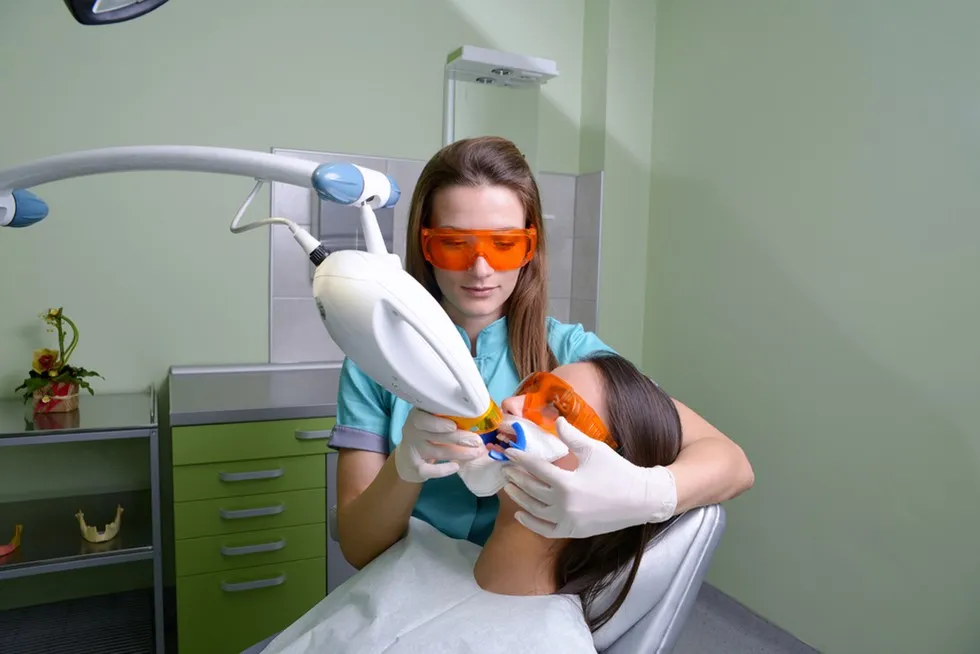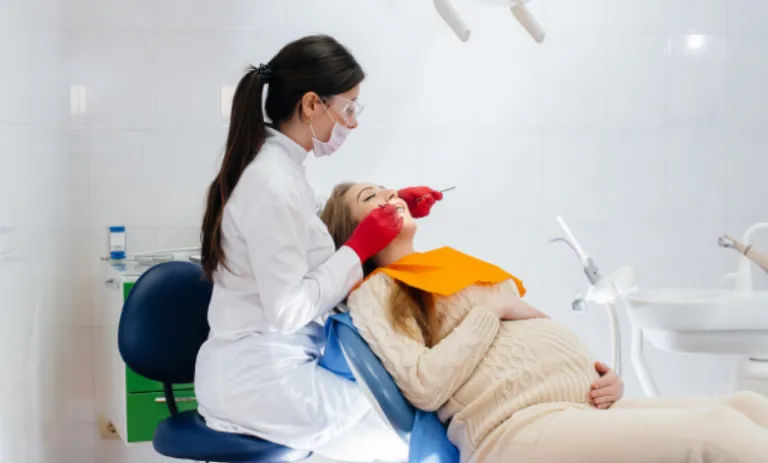Understanding Teeth Whitening & Pregnancy
Pregnancy brings about numerous changes in a woman’s body, and these changes often extend to oral health. Hormonal fluctuations can increase the risk of gingivitis and other dental issues. The question of whether teeth whitening is safe during pregnancy is a common one, as expectant mothers prioritize the health and well-being of their unborn child. This article delves into the safety aspects of teeth whitening during pregnancy, exploring the different methods, potential risks, and safer alternatives. Understanding the implications of teeth whitening during this crucial period is vital for making informed decisions about your dental care.
How Does Teeth Whitening Work?
Teeth whitening typically involves using bleaching agents to lighten the color of your teeth. These agents, often hydrogen peroxide or carbamide peroxide, penetrate the enamel and dentin, breaking down stain molecules. The process can be performed at home using over-the-counter products or in a dental office with professional treatments. The effectiveness and safety of teeth whitening depend on various factors, including the concentration of the bleaching agent, the duration of treatment, and the individual’s oral health. Understanding the mechanisms behind teeth whitening is essential when considering its use during pregnancy. Before deciding on teeth whitening during pregnancy, it is important to understand how this procedure works to evaluate potential safety.
Teeth Whitening Products and Pregnancy

When it comes to teeth whitening during pregnancy, it is crucial to understand the different types of products available and their potential effects. Over-the-counter (OTC) products and professional treatments each have their own considerations. The primary concern revolves around the safety of the ingredients, particularly the bleaching agents, and their potential impact on the developing fetus. It’s important to remember that anything you ingest or apply can potentially affect your baby. Therefore, being aware of the specific products and consulting with your dentist can help to make safe decisions during pregnancy.
Over-the-Counter Whitening Products
Over-the-counter teeth whitening products include whitening toothpastes, strips, gels, and mouthwashes. These products generally contain lower concentrations of bleaching agents, making them readily available without a prescription. During pregnancy, the safety of these products is often questioned. While the lower concentrations might suggest a reduced risk, the lack of stringent regulations and potential for ingestion raise concerns. Always consult your dentist before using any OTC whitening products during pregnancy. Reading labels, checking ingredients, and knowing the limitations is important to ensuring the safety of both mother and baby.
Professional Teeth Whitening Treatments
Professional teeth whitening treatments, performed by a dentist, typically use higher concentrations of bleaching agents, yielding faster and more significant results. The increased potency of these treatments raises more significant safety concerns during pregnancy. Dentists take precautions to minimize exposure to the bleaching agents. However, there is still a chance of absorption or ingestion, which could pose potential risks to the fetus. Professional teeth whitening involves careful evaluation and precautions to ensure the safety of both the mother and the baby. Before undergoing any professional teeth whitening treatments, consult your dentist for guidance.
Potential Risks of Teeth Whitening During Pregnancy

The primary concern with teeth whitening during pregnancy is the potential impact of the bleaching agents on the developing fetus. While research is limited, it’s always better to err on the side of caution. The active ingredients, such as hydrogen peroxide and carbamide peroxide, can be absorbed into the bloodstream and could potentially cross the placental barrier. Other potential risks include increased tooth sensitivity, gum irritation, and the possibility of allergic reactions. It is essential to weigh the aesthetic benefits of teeth whitening against these potential health risks during pregnancy. By knowing the risks, pregnant women can make informed decisions.
Impact on Fetal Health
The effects of teeth whitening agents on fetal health are not fully understood, due to limited research. The concern is that these chemicals could interfere with fetal development. The lack of definitive studies highlights the importance of avoiding potential risks during pregnancy. Experts recommend minimizing exposure to any substances that could be harmful. The best approach is to prioritize the health and safety of the baby. Consulting with your doctor or dentist will help you to evaluate the potential risks. Ensuring the health of the baby during pregnancy is a priority, so it is best to avoid treatments that could cause harm.
Side Effects on the Mother
Besides the potential impact on the fetus, teeth whitening can cause side effects for the mother. These include increased tooth sensitivity, gum irritation, and, in some cases, allergic reactions. Hormonal changes during pregnancy can make a woman’s gums more sensitive. Therefore, teeth whitening could exacerbate these conditions. Always discuss any discomfort or side effects with your dentist. Pregnant women should prioritize their oral health. They should consult with their dental professional for advice. It is important to ensure a healthy pregnancy, and be able to make decisions that affect the overall well-being of the mother.
Safer Alternatives to Teeth Whitening

If you’re pregnant, you can maintain a bright smile with safer alternatives to teeth whitening. These alternatives help you to avoid potential risks to the developing fetus. Focus on maintaining good oral hygiene, and consult your dentist for professional advice. You can still achieve a brighter smile without compromising your health or the health of your baby. These options offer an effective way to take care of your teeth during pregnancy.
Maintaining Oral Hygiene During Pregnancy
Maintaining excellent oral hygiene is crucial during pregnancy. This includes brushing your teeth twice a day with fluoride toothpaste. Flossing daily, and attending regular dental check-ups are important steps to prevent dental problems. Pregnant women are more susceptible to gum disease and other oral health issues. Therefore, practicing proper oral hygiene is essential for preventing dental problems. Be sure to follow the advice of your dentist. Good oral hygiene is a foundation for maintaining a healthy smile during pregnancy. This practice also benefits the health of both the mother and the baby.
Natural Teeth Whitening Methods
Some natural methods can help improve the appearance of your teeth without the use of harsh chemicals. Oil pulling with coconut oil can reduce bacteria. Gently brushing your teeth with baking soda can help remove surface stains. Strawberries and other fruits containing malic acid also have mild whitening properties. Always use these methods in moderation, as excessive use of some can damage enamel. Before trying any natural teeth whitening method, consult your dentist. Discussing natural options with your dentist will help you to maintain healthy teeth during pregnancy.
Consulting Your Dentist about Teeth Whitening

Before making any decisions about teeth whitening during pregnancy, consult your dentist. A dental professional can provide personalized advice. They will assess your oral health and advise on the best course of action. Dentists can weigh the potential risks and benefits based on your individual circumstances. They will also discuss safer alternatives. Your dentist is a trusted source of information and guidance for all your dental health needs. They will help you to make informed decisions to protect your health during pregnancy.
Benefits of Professional Advice
Seeking professional advice from your dentist offers several benefits. They can assess your oral health and offer personalized recommendations. They also have the expertise to determine if teeth whitening is safe for you. Your dentist can also provide you with the most up-to-date information on the risks and benefits. They can recommend safe alternatives. Consulting with your dentist empowers you to make informed decisions. In addition, it also protects your oral health during pregnancy. Your dental professional can help you to achieve a brighter smile while keeping the baby safe.
What to Expect During a Dental Consultation
During a dental consultation about teeth whitening, your dentist will conduct a thorough examination of your teeth and gums. They’ll discuss your dental history, including any existing dental issues or sensitivity. They will also discuss your cosmetic goals. Your dentist will then explain the different teeth whitening options. They will consider the risks and benefits. They will also recommend the safest approach for you and your baby. The consultation provides an opportunity to ask questions. Be sure to voice any concerns you may have. It is a crucial step towards a safe and effective teeth whitening plan.
In conclusion, while the desire for a brighter smile is understandable, the safety of teeth whitening during pregnancy is a complex issue. The potential risks to the developing fetus outweigh the cosmetic benefits. Prioritizing oral health through regular dental check-ups, good oral hygiene practices, and safer alternatives is essential. Always consult with your dentist for personalized advice and guidance. This will help you to maintain a healthy and beautiful smile throughout your pregnancy.
